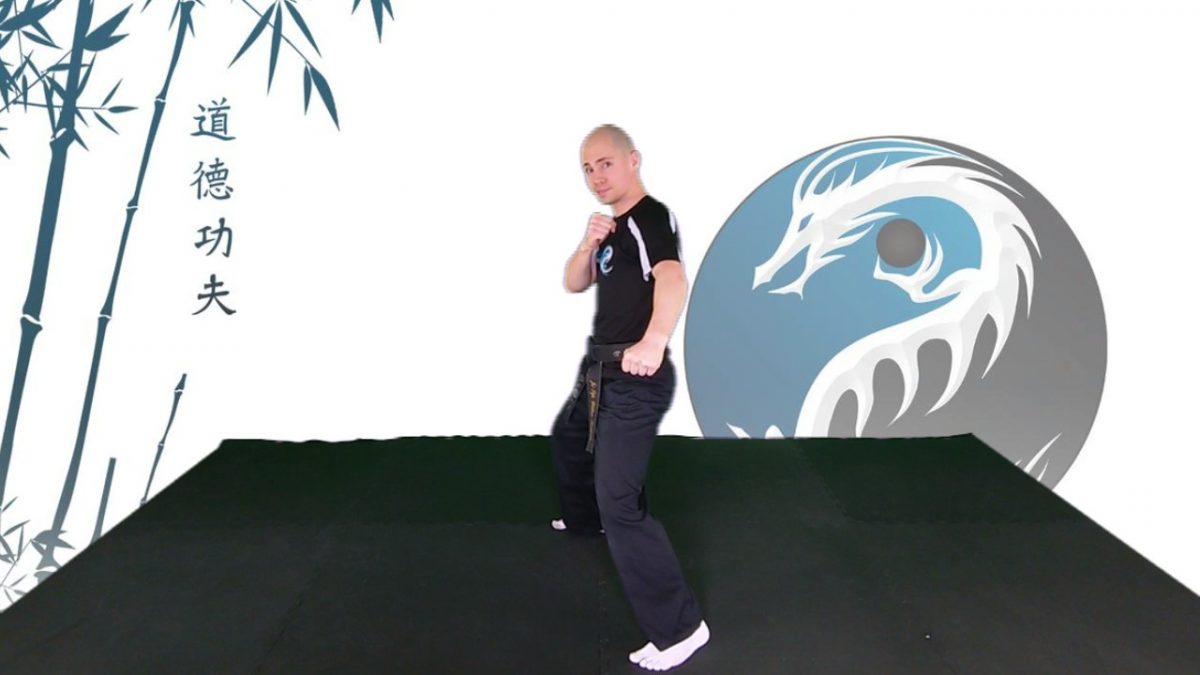
Focus & Self Mastery
The best Kung Fu training will have a primary emphasis on developing focus & mastering your own reactions. Kung Fu can be translated to mean something like ‘mastery through hard work.’ The greatest struggle faced by most people on a daily basis is mastering their own nature. Students should be taught to understand and control their physiological responses in the face of confrontation. You can have great martial arts techniques that you use wonderfully in the Dojo or training studio, but if you haven’t learned to control the way your body reacts to such a stressful situation, you could find yourself frozen or barely able to move when a real self-defence situation arises. This is why, traditionally, many Kung Fu classes will include some meditation instruction and have an emphasis on those philosophical concepts that help to mature a person’s outlook on life; how they see themselves and their relationship with the world. Such ideas are the bedrock of character development.
Discipline & Self Esteem
The humble, dignified, quiet confidence, that grows with martial expertise and self-knowledge, inevitably overflows into every aspects of life. As students increase their self-esteem through Kung Fu, they become increasingly content with who they are, saving them from self-doubt and insecurity.
Confidence & Grounding
Good Kung Fu masters will make every effort to increase a student’s confidence and sense of their place within the world. It is the sense of being grounded and the corresponding comfortable contentment that enables students to feel more confident in all their positive life choices.
Flexibility, Balance, Fluidity, Strength, Speed
While good Kung Fu training will enhance these, principally, physical attributes, the best training will take into account the development of the psychological attributes that they parallel. The flexibility of easily coping with different approaches to problems. The balance that comes with having the presence of mind to pause in otherwise anxious situations and reflect on the alternate perspective of others. The fluidity to adapt and take change in one’s stride. The strength of character that means others can rely on you to be a calming and reliable presence. The speed of thought that takes challenges with ease, quickly & calmly responding appropriately.
Courtesy & Respect
Some historical traditions should always be maintained because they can help create a separation between our everyday lives and the training studio. In classes we bow as we enter to mark the transition to a space in which the ego, competition and life’s stresses are left behind. We bow to our training partners to acknowledge their co-operation and friendly intent as we enable each other to achieve our best. Even if you are training at home on your own, it is important to take a moment before you start your practice to be sure that you are training with a humble attitude, intent on personal growth. Picture yourself as the calm and dignified master you are becoming.
Give some time to consider your personal standpoint on the ethical use of violence and develop a sense of what you would be prepared to do in various scenarios. This will spare you the possibility of reacting quickly when you don’t have time to evaluate your response and find yourself morally compromised. While we are qualified to teach the legal aspects of self-defence in the UK, your local laws are likely to be very different and for this reason we cannot advise you in this respect. Therefore, it is your responsibility to find out what your legal limits are. In Britain, for example, many instructors aren’t qualified to teach self-defence within the context of the law, in which case they are merely teaching you to fight. This might seem helpful until you are confronted with a real-life situation and you are either paralysed by indecision or find yourself arrested because you didn’t know what was permitted.
